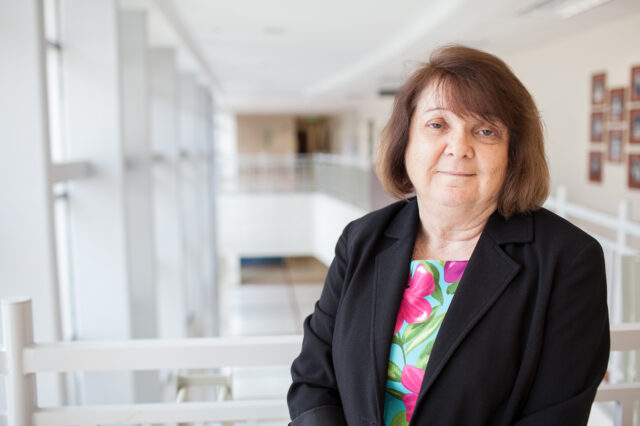UF taps social and health psychologist to lead new cancer-reduction initiative

Barbara Curbow, Ph.D., a professor and chair of the department of behavioral science and community health in the University of Florida College of Public Health and Health Professions, has been selected to direct the UF Shands Cancer Center’s newly established population science program.
Under Curbow’s direction, the program will seek to reduce cancer burden in the general population by identifying risk factors, developing prevention and early detection strategies and investigating patient perceptions and behaviors related to treatment. Special emphasis will be placed on vulnerable populations that may have unique risk factors and difficulty getting health care.
“Our first task is to draw together UF faculty with a broad range of talents and areas of specialization to build our cancer prevention and control efforts,” said Curbow. “Of particular interest is to identify and address the needs of low-income residents of rural north Florida and other vulnerable populations in our own neighborhood.”
Before joining UF in 2006, Curbow served on the faculty at The Johns Hopkins University Bloomberg School of Public Health from 1987 to 2005. She is now an adjunct professor there.
A social and health psychologist specializing psychosocial oncology, health psychology and occupational health psychology, Curbow earned her doctoral degree from the University of California, Santa Cruz. She has been an active researcher for 30 years, focusing on health disparities in treatment decision-making for chemotherapy as an addition to radiation or surgery for colorectal cancer, and on tobacco control, use of alternative tobacco products and cancer caregiving.
“Sometimes the best medicine starts at home, and we believe this program will be of tremendous value to our state in understanding how changing health behaviors and perceptions in vulnerable populations can lead to reductions in new cancer diagnoses and cancer-related deaths,” said Paul Okunieff, M.D., director of the UF Shands Cancer Center, chair and professor of radiation oncology and the Marshall E. Rinker Sr. Foundation and David B. and Leighan R. Rinker Chair. “One of every 11 new cancer cases in the U.S. occurs in Florida — wouldn’t it be wonderful to change that statistic simply by reaching out to our vulnerable elderly, rural and economically disadvantaged residents in a way that is meaningful and cost-effective?”